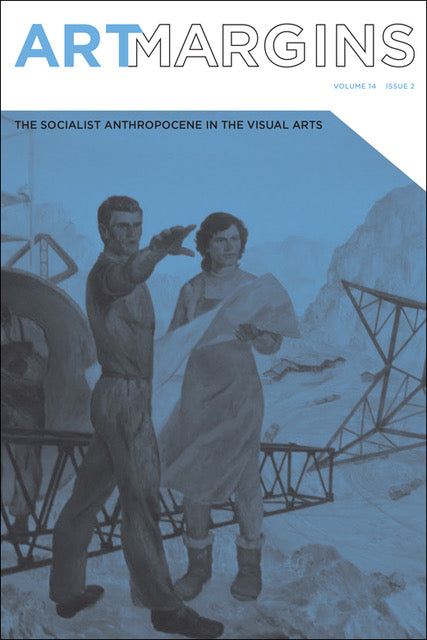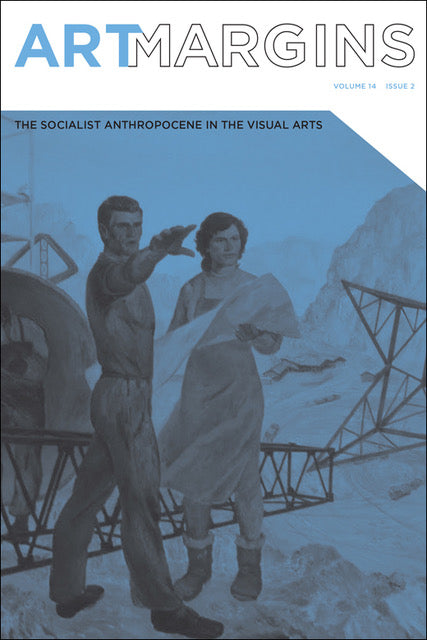Art Margins, Volume 14 Issue 2: The Socialist Anthropocene in the Visual Arts
Art Margins, Volume 14 Issue 2: The Socialist Anthropocene in the Visual Arts
Couldn't load pickup availability
“Lead, zinc, copper, coal, gold, cadmium, silver, oil, tungsten, corundum, gasoline, nickel, marble, Glauber’s salt [and] phosphorites” flow from Kazakhstan through the “full arteries of railroads,” delivering its “industrial blood” across the Soviet Union “to feed the factories and plants,” before returning “in the shape of airplanes, tractors, excavators, automobiles [and] turbines.” This entry, under the heading “Socialist Metabolism,” appeared in an issue of the showcase journal USSR in Construction devoted to the fifteenth anniversary of Soviet Kazakhstan, cataloging the precious minerals, metals, rocks, and hydrocarbons extracted from the Central Asian republic to supply the expanding socialist industrial complex. In an ideological balancing act, the raw materials come back in the form of machinery to transform the mountains, bring water to the steppe, and tend crops and herds, completing the biomorphic cycle by which “the riches of the Earth’s interior become riches of the surface—meat, wool, leather, fish and cotton.” This short passage, in a richly illustrated edition designed by artist couple Aleksandr Rodchenko and Varvara Stepanova, does not fail to emphasize that the metabolic exchange of material substances in the socialist industrial organism pulsates “in obedience to the beating of its mighty and wise heart—the Kremlin,” inadvertently revealing the imperial agenda hardwired into this circulatory system.
ARTMargins publishes material related to the histories of 20th-century and contemporary art, art theory, art institutions, and curatorship. It places special emphasis on marginal histories and innovative critical and methodological perspectives. The editors are particularly interested in submissions that consider art within sociocultural, political, and theoretical contexts. They also welcome attention to the work of artists and art thinkers who work outside of English-speaking and official circuits. Submissions may consider, among other things, questions pertaining to art and politics, periodization and historicization—including the contemporary—sovereignty, post colonialism, decolonization, the notion of the global, and/or the transition from and towards socialism.
Shipping
Shipping
The books are shipped with Deutsche Post or DHL, according to the weight of the package.
For more informations, don't hesitate to get in touch !


